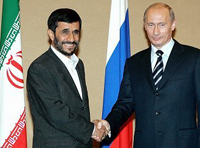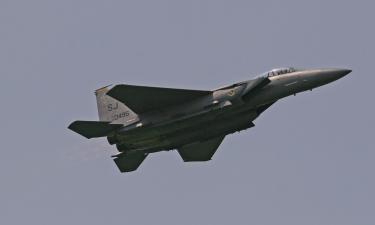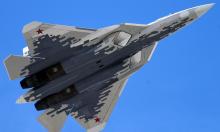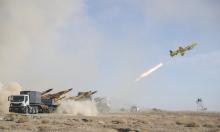Putin seeks to prevent USA’s unilateral military course against Iran
Russian President Vladimir Putin, shrugging off reports of a plot to assassinate him in Tehran, said he'll go ahead with a planned trip to Iran where talks will include the Islamic Republic's “nuclear dossier.”

“Of course I'll go to Iran,” Putin told a joint press conference with German Chancellor Angela Merkel in Wiesbaden, near Frankfurt. If he heeded every threat he was informed of, “I'd never leave home,” he said.
Putin gave no indication of any softening in Russia's opposition to calls by the U.S. for stronger international sanctions on Iran unless it halts its nuclear program. That contrasted with Merkel's insistence that Iran fulfill United Nations Security Council demands to suspend the enrichment of uranium or “there will have to be a new round of sanctions.”
In two resolutions, the Security Council has barred Iran from acquiring nuclear-bomb-making technology and has frozen the assets of people and groups linked to its nuclear program. Iran says its atomic program is aimed solely at producing energy.
On the eve of Putin’s visit to Iran Pravda.Ru interviewed two major Middle East and Russian policy experts Marshall Goldman and Flynt Leverett. Marshall Goldman is Kathryn Wasserman Davis Professor of Russian Economics (Emeritus) at Wellesley College. Flynt Leverett is a Senior Fellow at the New America Foundation.
Pravda.Ru: How could you comment on Vladimir Putin’s visit to Iran?
Flynt Leverett: Since the end of the Cold War and the breakup of the Soviet Union, Iran has become an increasingly important regional partner for Russia—in terms of Islamic issues, the regional balance of power in Central Asia, economic relations, and energy. This trend has accelerated under President Putin, and his visit to Iran—the first by a Russian leader since Stalin attended the Tehran summit with Roosevelt and Churchill during World War II—reflects that.
Marshall Goldman: My impression is that Putin would like to play a greater role in international diplomacy. He has said that, as a Russian, he is worried about Iran developing nuclear weapons - after all Iran is much closer to Russia than to the us or Europe as well as Israel. He realizes he would win world applause if he can find some way convince Iran to develop nuclear energy peacefully. That is why he has urged Iran to send its nuclear waste to Russia for processing. At the same time he wants to continue Russia’s role as a supplier of nuclear energy equipment to Iran—so he doesn't want to be too harsh.
It also adds to Putin's image that he insists that he will go to Iran despite warnings about an attempt on his life - whether the attempt to assassinate him is real or not, for him to decide not to go would take away from his macho image
Pravda.Ru: Do you think Putin's visit to Iran will raise concerns with the US administration?
Marshall Goldman: It might but I think the administration may welcome his efforts since the US needs someone to negotiate on its behalf.
Flynt Leverett: Undoubtedly, the Bush Administration is concerned about the Putin visit on many levels, including its timing and what it may signify about Russia's willingness to apply further sanctions against Iran through the United Nations Security Council.
Pravda.Ru: Do you think Russia and Iran intend to strengthen their relations against the background of USA's intentions to attack Iran?
Flynt Leverett: President Putin and other Russian officials are clearly concerned about the risk that the Bush Administration will once again pursue a course of unilateral military action - as it did in Iraq - to deal with the Iranian nuclear issue. I believe that this concern is valid - there is indeed a risk that the United States will pursue a unilateral military course against Iran. One way in which Moscow can try to raise the prospective costs to the United States of unilateral military action -and position Russia for strategic gains if the United States is foolish enough to pursue this course -is by strengthening Russian ties to the Islamic Republic.
Marshall Goldman: While there are certainly some in Washington who want to attack Iran, I think at this point the US is unlikely to do so - it has too many problems in Iraq and while an attack on the US would serve to rally US public support for the us president - I don't think that a US attack today on Iran would crate that result - given us problems in Iraq, I think an attack on Iran would create even more criticism of the bush administration when it already has more criticism than it can handle - especially before an election. I think that Russia and Iran would like to strengthen relations but I don't think Putin will do so unless he feels that Iran will temper some of its more extreme behavior.
Prepared by Alexander Timoshik
Pravda.Ru
Subscribe to Pravda.Ru Telegram channel, Facebook, RSS!



